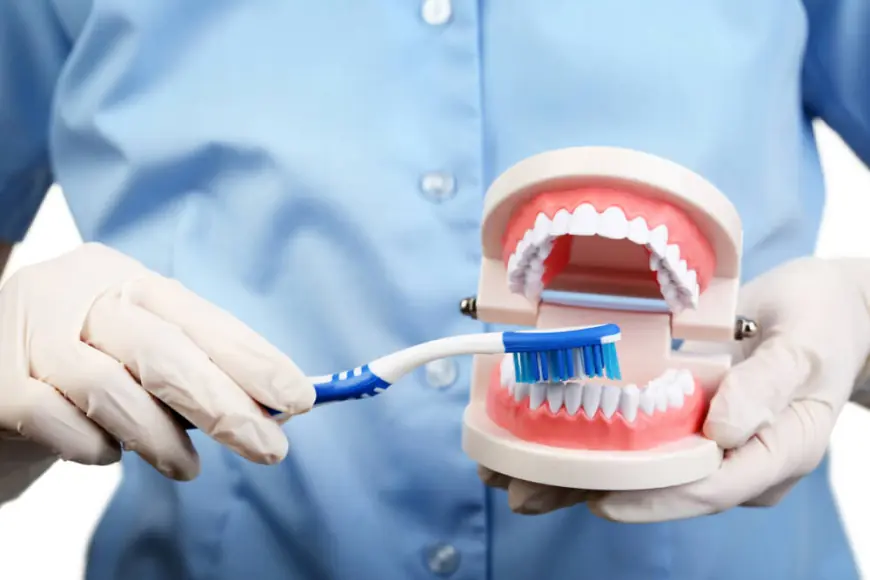Preventive Dentistry: Protecting Your Smile for a Lifetime
Learn how preventive dentistry protects your teeth, gums, and overall health. Effective treatments to keep your smile healthy and vibrant for years.

Oral health plays a vital role in your overall well-being. Preventing dental problems before they start ensures you avoid costly and painful treatments later. Preventive dentistry focuses on maintaining healthy teeth and gums through regular care and early intervention. It includes regular check-ups, cleanings, and patient education. These practices help identify issues before they become severe. By investing in preventive care, you can enjoy a healthy, vibrant smile for years. Preventive dental care benefits children, adults, and seniors alike making it essential for lifelong oral health.
The Importance of Routine Dental Check-Ups
Regular dental visits are a cornerstone of preventive care. During these check-ups, your dentist examines your teeth and gums for signs of trouble. They may take X-rays to detect hidden issues like cavities or bone loss. Early detection allows your dentist to address problems before they worsen. Routine visits also include professional cleanings to remove plaque and tartar. These build-ups can lead to gum disease and tooth decay if left untreated. By scheduling check-ups twice a year, you keep your oral health in check. Preventive care helps avoid more complex dental procedures later.
Professional Dental Cleanings and Their Benefits
Even with excellent brushing and flossing habits, plaque can accumulate over time. Professional cleanings help remove this build-up, protecting your teeth and gums. During a cleaning, the dental hygienist uses specialized tools to remove plaque and tartar from hard-to-reach areas. This process prevents cavities and gum disease. Additionally, cleanings leave your teeth feeling fresh and polished. Your dentist can also spot early signs of problems during these sessions. Incorporating professional cleanings into your preventive care routine maintains a healthy and bright smile. This simple step goes a long way in protecting your teeth.
The Role of Dental Sealants in Preventive Care
Dental sealants are a powerful tool in preventing cavities. They consist of a thin, protective coating applied to the chewing surfaces of molars. These areas are prone to collecting food particles and bacteria. Sealants form a barrier that protects teeth from decay. They are especially beneficial for children, who may struggle with thorough brushing. However, adults can also benefit from sealants. The application process is quick, painless, and cost-effective. Once applied, sealants can last for several years. Including sealants in your preventive dentistry plan significantly reduces the risk of cavities.
Fluoride Treatments for Stronger Teeth
Fluoride is a natural mineral that helps strengthen tooth enamel. It prevents decay by making teeth more resistant to acid attacks from plaque bacteria. Dentists often recommend fluoride treatments as part of preventive care. These treatments are quick and non-invasive. Your dentist applies a fluoride gel or varnish to your teeth, which strengthens them over time. Fluoride is particularly helpful for children, whose teeth are still developing. However, adults can also benefit from fluoride treatments. By incorporating fluoride into your dental care routine, you support strong, healthy teeth for life.
Teaching Children Good Oral Hygiene Habits
Oral care starts at an early age. Teaching children proper hygiene habits sets them up for a lifetime of healthy teeth. Encourage kids to brush their teeth twice a day and floss daily. Regular dental visits help children get used to the dentist’s office, reducing fear and anxiety. Dentists can also provide fun and engaging lessons on proper oral care. Additionally, treatments like sealants and fluoride protect young teeth from decay. Routine care for children reduces the risk of cavities and gum disease. Early education and regular care create lasting healthy habits.
The Connection Between Oral Health and Overall Health
Good oral health is linked to overall well-being. Poor dental hygiene can lead to serious health issues like heart disease, diabetes, and respiratory infections. Gum disease, in particular, increases the risk of these conditions. Bacteria from infected gums can enter the bloodstream and affect other parts of the body. Regular dental visits and cleanings help keep these bacteria in check. Consistent dental care plays a crucial role in maintaining both oral and general health. By taking care of your teeth and gums, you are also protecting your body. This connection highlights the importance of routine dental care.
Gum Disease Prevention Through Regular Care
Gum disease is a common but preventable condition. It starts with gingivitis, which causes red, swollen gums that may bleed. If untreated, it can progress to periodontitis, a more severe form that damages gum tissue and bone. Regular dental check-ups and cleanings prevent gum disease by removing plaque and tartar. Your dentist can also provide tips on proper brushing and flossing techniques. Early detection allows for simple treatments to stop gum disease in its tracks. With consistent care, you can keep your gums healthy and avoid serious complications.
The Benefits of X-Rays in Dental Care
Dental X-rays are an essential part of routine care. They help dentists see issues that are not visible during a regular exam. X-rays can detect cavities, bone loss, and impacted teeth. They also help monitor the growth of children’s teeth. Early detection through X-rays allows your dentist to address problems before they become severe. Modern dental X-rays use low radiation levels, making them safe for routine use. Including X-rays in your care plan ensures a comprehensive view of your oral health. This technology plays a vital role in catching issues early.
How Diet Affects Oral Health
A balanced diet supports healthy teeth and gums. Foods rich in vitamins and minerals strengthen tooth enamel and gum tissue. Calcium, found in dairy products, helps build strong teeth. Vitamin C, found in fruits and vegetables, supports healthy gums. On the other hand, sugary and acidic foods contribute to tooth decay and erosion. Drinking plenty of water helps wash away food particles and bacteria. A diet low in sugar and high in nutrients supports overall oral health. Combined with regular dental care, a healthy diet keeps your smile bright and strong.
Addressing Tooth Sensitivity Early
Tooth sensitivity can indicate underlying issues like cavities, gum disease, or enamel erosion. If you experience discomfort when eating hot or cold foods, consult your dentist. Early intervention can prevent the problem from worsening. Your dentist may recommend desensitizing toothpaste, fluoride treatments, or a filling to address the issue. Routine care focuses on catching these problems early. Regular check-ups and cleanings help maintain healthy teeth and gums. Addressing sensitivity promptly ensures you can enjoy your favorite foods without pain. Early care prevents more complicated dental treatments later.
Dental Care for Seniors
Oral health becomes more challenging with age. Seniors face issues like dry mouth, gum disease, and tooth loss. Regular dental visits are essential for maintaining oral health in older adults. Routine care helps detect and address these problems early. Treatments like fluoride applications and professional cleanings support strong teeth and gums. Dentures and implants also need regular care and maintenance. Proper dental care for seniors ensures a higher quality of life and overall health. By addressing oral issues early, seniors can maintain a comfortable and functional smile.
Deep Cleanings for Gum Health
Sometimes, regular cleanings are not enough to maintain gum health. In such cases, dentists recommend a deep cleaning. This procedure also called scaling and root planing, removes plaque and tartar below the gum line. It helps treat early stages of gum disease and prevents it from progressing. A deep-cleaning dentist uses special tools to clean deep pockets around the teeth. This process helps gums heal and reduces inflammation. Deep cleanings are an important part of preventive care for those with gum disease. They help restore gum health and prevent tooth loss.
Conclusion
Investing in preventive dentistry ensures a lifetime of healthy teeth and gums. Regular check-ups, cleanings, and early intervention help avoid costly and painful treatments later. By addressing dental issues early, you maintain both your oral and overall health. For those with gum disease, a deep cleaning dentist can provide essential care to restore gum health. Prioritizing preventive dental care helps you enjoy a healthy, confident smile for years. Take the steps today to protect your oral health and overall well-being.
What's Your Reaction?
 Like
0
Like
0
 Dislike
0
Dislike
0
 Love
0
Love
0
 Funny
0
Funny
0
 Angry
0
Angry
0
 Sad
0
Sad
0
 Wow
0
Wow
0


















































